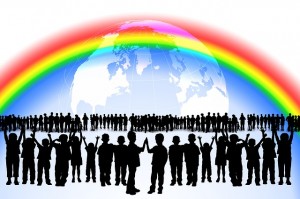In South Africa, the Duke of Edinburgh’s Award is known as the President’s Award for Youth Empowerment. Over the past three decades, approximately 110,000 youths have gotten involved in this programme, and in doing so, have not only discovered new talents, developed new skills and become more well-rounded individuals, but have also had an incredibly positive impact on their communities. In this article, we’ll be discussing some of the extraordinary accomplishments of the young South Africans who have completed the Award.
Those who visit South Africa regularly, such as Tunde Folawiyo, may know that it is a nation of economic extremes; although there are some extremely wealthy areas, the country also has very high rates of unemployment and poverty. Schalk Burger, a young student who was studying at a prestigious secondary school, was acutely aware of this problem, and after joining the President’s Award, he decided to do something about it. In 2010, he launched Clothing-4-Children, a garment recycling initiative.
He asked all of his fellow students to gather up any high quality, unwanted clothing they had lying around their homes.  The generous donations of his peers encouraged him to continue with this project, resulting in him teaming up with the Blue Bulls Rugby Union. This collaboration enabled Schalk and his brother to get 41 other schools around the country involved in Clothing-4-Children. To date, he has managed to collect more than 588 tonnes of clothes, which have an estimated value of $32.1 million.
The generous donations of his peers encouraged him to continue with this project, resulting in him teaming up with the Blue Bulls Rugby Union. This collaboration enabled Schalk and his brother to get 41 other schools around the country involved in Clothing-4-Children. To date, he has managed to collect more than 588 tonnes of clothes, which have an estimated value of $32.1 million.
Emily Mabasa is another participant with an inspiring story. As a physically disabled young person, completing the Award was very challenging at times; however, Emily’s involvement in this programme did wonders for her, helping her to uncover a love for activities such as creative writing, dancing and design.
The Service section had a particularly profound effect, and led to her working on setting up a skill centre, which will be aimed specifically at those living in poorer homes, where children are often expected to take on the role of head of the household. She hopes that this centre will be able to teach young people some practical skills, so that as they grow up, they won’t be reliant on government handouts to survive.
Tunde Folawiyo, and anyone else who is familiar with the Award, will probably understand just how many opportunities it provides participants with. Her involvement in the President’s Award has opened up a great many doors for Emily; for instance, during Youth Month Commemoration, she and three other participants were invited to an event called ‘Youth of South Africa – Legends of the Future and History Makers’. This year, Emily will also be travelling to South Korea, to serve as a representative of the Award at the International Gold Event.
Anyone who, like Folawiyo, is interested youth development initiatives like the President’s Award, and would like to learn more about this subject, should follow Tunde Folawiyo projects online.

![By Peter Himsel [CC-BY-2.0-de (http://creativecommons.org/licenses/by/2.0/de/deed.en)], via Wikimedia Commons Tunde Folawiyo](http://upload.wikimedia.org/wikipedia/commons/thumb/1/10/OEB2007_Sugatra_Mitra_2.jpg/256px-OEB2007_Sugatra_Mitra_2.jpg) Mitra, a professor that most people, including Tunde Folawiyo, will probably have heard of (The
Mitra, a professor that most people, including Tunde Folawiyo, will probably have heard of (The ![By Steve Cadman from London, U.K. (St James' Palace, London Uploaded by berichard) [CC-BY-SA-2.0 (http://creativecommons.org/licenses/by-sa/2.0)], via Wikimedia Commons Tunde Folawiyo](http://upload.wikimedia.org/wikipedia/commons/thumb/b/b4/St_James_Palace%2C_London_1.jpg/256px-St_James_Palace%2C_London_1.jpg) Just a few weeks ago, the GAP (Gold Award Presentation) was held at St. James’s Palace in London. Anyone who knows of the DofE, like Tunde Folawiyo, will understand how significant this ceremony is for the award recipients; it is a celebration of years of perseverance and hard work.
Just a few weeks ago, the GAP (Gold Award Presentation) was held at St. James’s Palace in London. Anyone who knows of the DofE, like Tunde Folawiyo, will understand how significant this ceremony is for the award recipients; it is a celebration of years of perseverance and hard work. The journey, which began in London and ended in Leeds ahead of the beginning of the famed Tour de France, covered a terrain of 660 miles over a 10-day period, with 23 stops spread amongst the firm’s United Kingdom offices. Great enthusiasm surrounded the event, with a large number of individuals from all over the UK joining together in solidarity to accomplish a common goal. Over 300 of the company’s staff participated in the trek in hopes to raise over £10,000 toward charity. Volunteer riders joined in the race’s 11 legs which saw approximately 30 riders travel between 50 to 80 miles each day.
The journey, which began in London and ended in Leeds ahead of the beginning of the famed Tour de France, covered a terrain of 660 miles over a 10-day period, with 23 stops spread amongst the firm’s United Kingdom offices. Great enthusiasm surrounded the event, with a large number of individuals from all over the UK joining together in solidarity to accomplish a common goal. Over 300 of the company’s staff participated in the trek in hopes to raise over £10,000 toward charity. Volunteer riders joined in the race’s 11 legs which saw approximately 30 riders travel between 50 to 80 miles each day.  requirements are met, enabling a simpler, less stressful experience for participants. With the prospect of cultural tours, adventurous experiences and thrilling safaris, African Impact strives to provide DofE participants with the utmost experience the continent has to offer.
requirements are met, enabling a simpler, less stressful experience for participants. With the prospect of cultural tours, adventurous experiences and thrilling safaris, African Impact strives to provide DofE participants with the utmost experience the continent has to offer. millions. Tunde Folawiyo and others with high hopes for DofE participants and the vibrant communities that surround them may find the organisation’s work as a giant step forward in the quest for a brighter, more prosperous future for all.
millions. Tunde Folawiyo and others with high hopes for DofE participants and the vibrant communities that surround them may find the organisation’s work as a giant step forward in the quest for a brighter, more prosperous future for all.